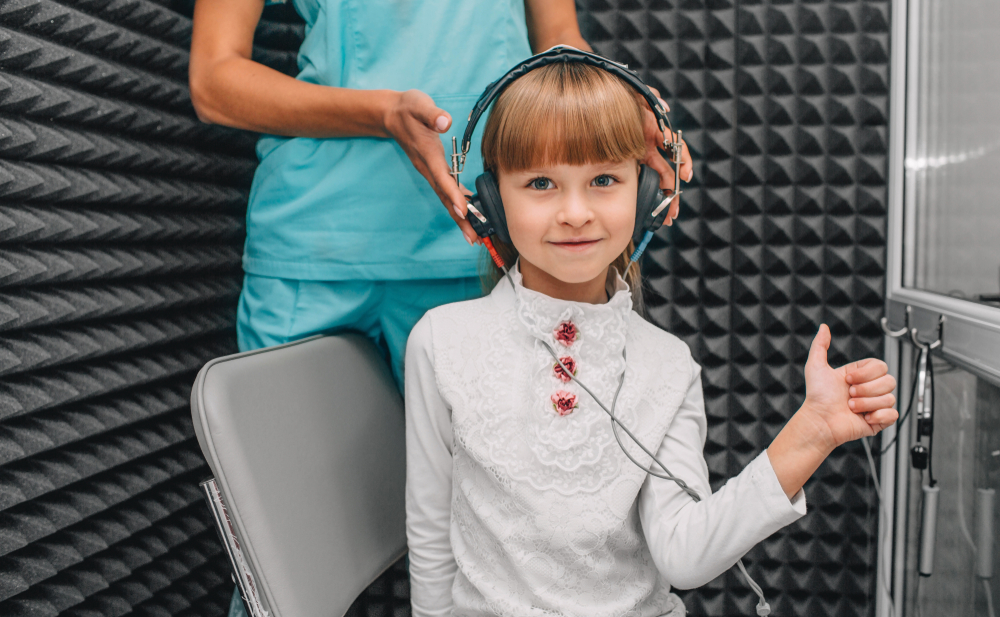Did you know that October is National Audiology Awareness Month? You may be wondering why there’s a month dedicated to your hearing, but it is essential to how you interact with the world around you.
Hearing loss is also more common than you may realize. It’s prevalent across multiple age groups and can cause long-term physical and mental health problems if left untreated.
Seeing an audiologist for regular hearing exams may help save your hearing. But National Audiology Awareness Month is important for many other reasons. Keep reading to learn about 7 reasons why National Audiology Awareness Month is essential.
1. Hearing Loss is More Common Than You Think

Hearing loss is a lot more common than you may realize. Currently, around 37 million people in the US suffer from some degree of hearing loss.
Despite advancements in modern medicine, hearing loss is more common today than in previous years, and it’s only growing. What’s causing this increase in hearing loss?
Loud music is a significant contributing factor to the increased prevalence of hearing loss. Frequently listening to music at high volumes, whether through headphones or at live events, can cause irreversible damage to your hearing.
You can lower your risk for hearing loss by limiting how often and how long you listen to music at high volumes. If you like to go to concerts and listen to loud music frequently, you owe it to yourself to schedule a hearing exam. Listening to so much loud music all the time may harm your hearing and ears.
2. Hearing Loss Can Occur at Any Age
Although it can seem like hearing loss is something that only affects older adults, that’s not accurate. Being older is not the only way that you can experience hearing loss.
Half of all people with hearing loss are younger than 65. Age can be a factor for developing hearing loss, but it’s only one of many.
Other factors may take precedence as well. You can develop hearing loss at a younger age, especially if you often listen to loud music and other forms of audio.
Children can also develop hearing loss. Most childhood hearing loss cases are preventable. If you have children, it’s best to have their hearing tested regularly to ensure they are hearing properly.
If there is an issue with their hearing, it’s always best to diagnose it as early as possible.
3. You May Not Realize You Have Hearing Loss

Hearing degeneration can be gradual, meaning you may not realize if you have hearing loss. You may not realize there’s anything wrong with your hearing.
But your hearing may only get worse the longer it goes untreated. That’s why seeing one of the experienced audiologists at St. Luke’s for the detection of hearing loss early can save your hearing.
4. You Don’t Have to Put Up With Constant Ear Ringing
If you deal with constant ringing in your ears, it could be due to a common hearing condition called tinnitus. You may have chosen not to do anything about your tinnitus because you’ve heard there’s no way to cure it.
Although you cannot cure or eradicate tinnitus, it is treatable. These treatments can help get the condition under control and significantly improve your symptoms.
However, the only way to receive treatment for tinnitus is by seeing an audiologist.
5. With Hearing, You Have to Use It, or You Lose It!
Like most other medical conditions, hearing loss benefits from early detection and treatment. If you have hearing loss and choose not to treat it, it only makes it more challenging to live your life and participate in daily activities.
But not treating your hearing loss can also make it harder to treat your hearing later because of auditory deprivation. Auditory deprivation occurs when your brain doesn’t get enough auditory stimulation.
When this happens, you must redirect the brain power usually used to understand sounds. These include the sounds used to differentiate between other sounds, detecting where sounds are coming from, and even how you comprehend speech and redirect it to other brain functions.
After you’ve redirected your brain power, it becomes more challenging for your brain to regain those abilities. If you’ve had untreated hearing loss for quite some time, it will make it harder to hear well, even if you get hearing aids in the future to improve your hearing.
Auditory deprivation is also one reason untreated hearing loss can accelerate the progress of diseases like Alzheimer’s, dementia, and other forms of cognitive impairment.
6. You and Your Family Can Benefit From Routine Hearing Tests

Even if you don’t think you have hearing loss, routine visits to an audiologist ensure you can rest easy regarding your hearing. Hearing tests are as necessary as other preventative care, like going to the doctor for an annual physical, having a cleaning at the dentist, and seeing the eye doctor for an eye exam.
Hopefully, everyone’s hearing exams in your family will be healthy, and nobody will have any issues that need immediate addressing. But with regular visits, your audiologist will be able to detect any hearing problems early so they can treat them promptly.
7. Hearing Aids Are More Advanced Than Ever
Clunky hearing aids are a thing of the past. These days, hearing aids come in a variety of advanced designs.
At St. Luke’s, we can prescribe some of the most advanced hearing aids, including rechargeable hearing aids, invisible hearing aids, waterproof hearing aids, and even hearing aids that use artificial intelligence.
There’s never been a better time to make your hearing a priority. National Audiology Awareness Month is a great time to schedule your first visit to the audiologist.
At St. Luke’s, you can even schedule your hearing consultation on the same day as your eye appointment! Request your hearing consultation at St. Luke’s in Clearwater, FL, and get on the path to hearing more clearly!








